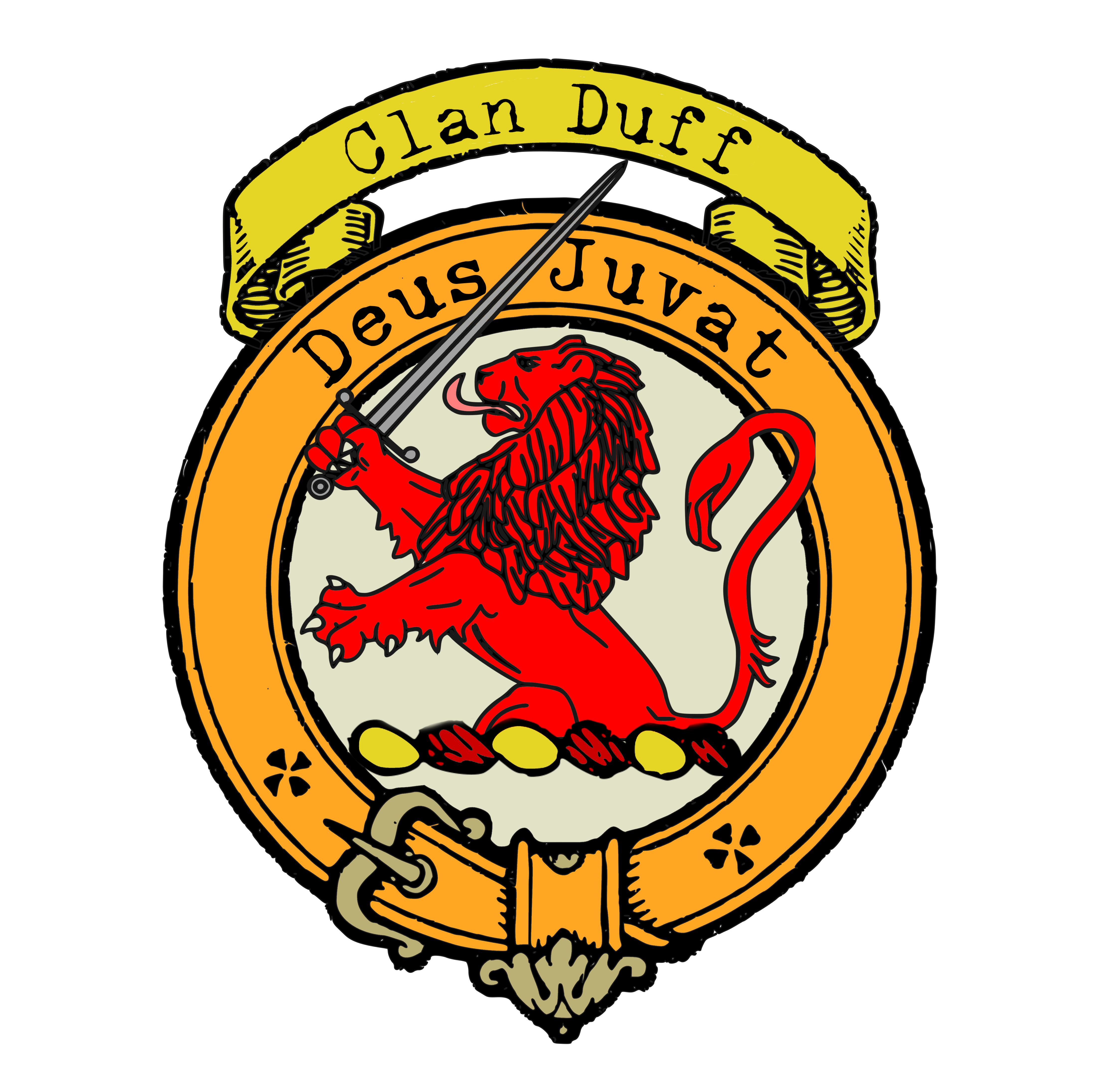Clan Duff Crest
|
|
CREST: A demi-lion Gules holding in the dexter paw a broadsword erected in pale Proper, hilted and pommelled MOTTO: Deus Juvat TRANSLATION: God assists VARIATIONS: McDuff, MacDuff |
| The tale of Clan Duff begins with its assertion of descent from the Royal Scoto-Pictich line. According to their claims, Queen Gruoch, the wife of Macbeth, stands as the senior representative of this lineage. With her connection to the throne, the Duffs’ ancestral ties to the Scottish monarchy are firmly rooted. This notable association sets the stage for their enduring impact on the course of Scottish history.
The Rise of Clan Duff: Following the death of Macbeth and his son Lulach, Malcolm III seized the crown, establishing his reign over Scotland. However, Clan Duff found a connection to the monarchy through the marriage of Aedh, son of Malcolm III, to Queen Gruoch’s granddaughter. Aedh was bestowed the title of Earl of Fife and Hereditary Abbot of Abernethy, elevating Clan Duff’s status in the kingdom. |
|
 |
|
| Purchase @ Redbubble Purchase @ Amazon.com Purchase @ Amazon.co.uk |
|
| The Earl of Fife, representing Clan Duff, enjoyed a series of distinct privileges that highlighted their esteemed position. Firstly, they were granted the honor of leading the vanguard of the Scottish army, a testament to their martial prowess and loyalty. Secondly, the Earl of Fife held the exceptional responsibility of enthroning the King of Scots during coronations, a symbolic role symbolizing their close ties to the Scottish monarchy. Lastly, they possessed the power to provide sanctuary to their kinsmen, offering refuge and protection, even in cases of serious offenses such as murder.
Throughout the annals of Scottish history, Clan Duff faced its fair share of challenges and trials. During the coronation of Robert the Bruce in 1306, Duncan Macduff, the Earl of Fife, was held captive by Edward I of England. Nevertheless, his sister, Isabel, Countess of Buchan, fearlessly crowned the Scottish king, leading to her subsequent imprisonment by King Edward’s army. These acts of loyalty and bravery, though fraught with peril, demonstrate the unwavering spirit of Clan Duff in their pursuit of Scotland’s independence. While Clan Duff experienced setbacks and political upheavals, they continued to prosper and build upon their ancestral legacy. In 1759, William Duff, an influential member of Parliament, was granted the titles of Earl Fife and Viscount Macduff. William commissioned the construction of the grand Duff House, a magnificent testament to the family’s wealth and standing within Scottish society. Though the house was eventually abandoned, its recent restoration serves as a reminder of Clan Duff’s enduring presence. Clan Duff’s historical contributions have not gone unnoticed. Their indomitable spirit and dedication to the Scottish cause are evident in their ancestral ties and influential positions. Today, the legacy of Clan Duff lives on, inspiring Scots and enthusiasts of Scottish history worldwide. The stories of their royal connections, privileges, and unwavering loyalty offer a glimpse into the remarkable narrative of one of Scotland’s most esteemed clans. |
|
Citations:
|
|

